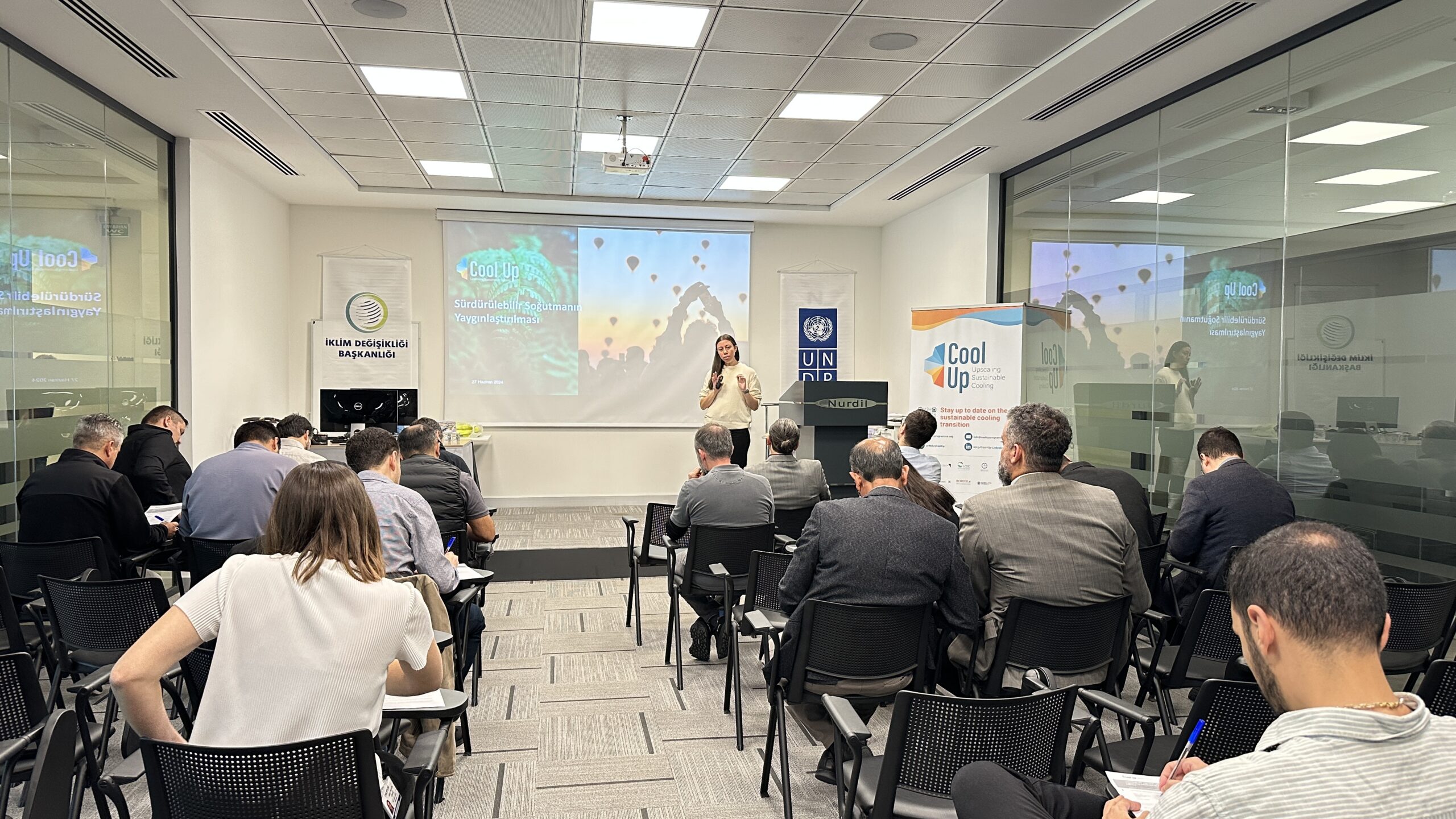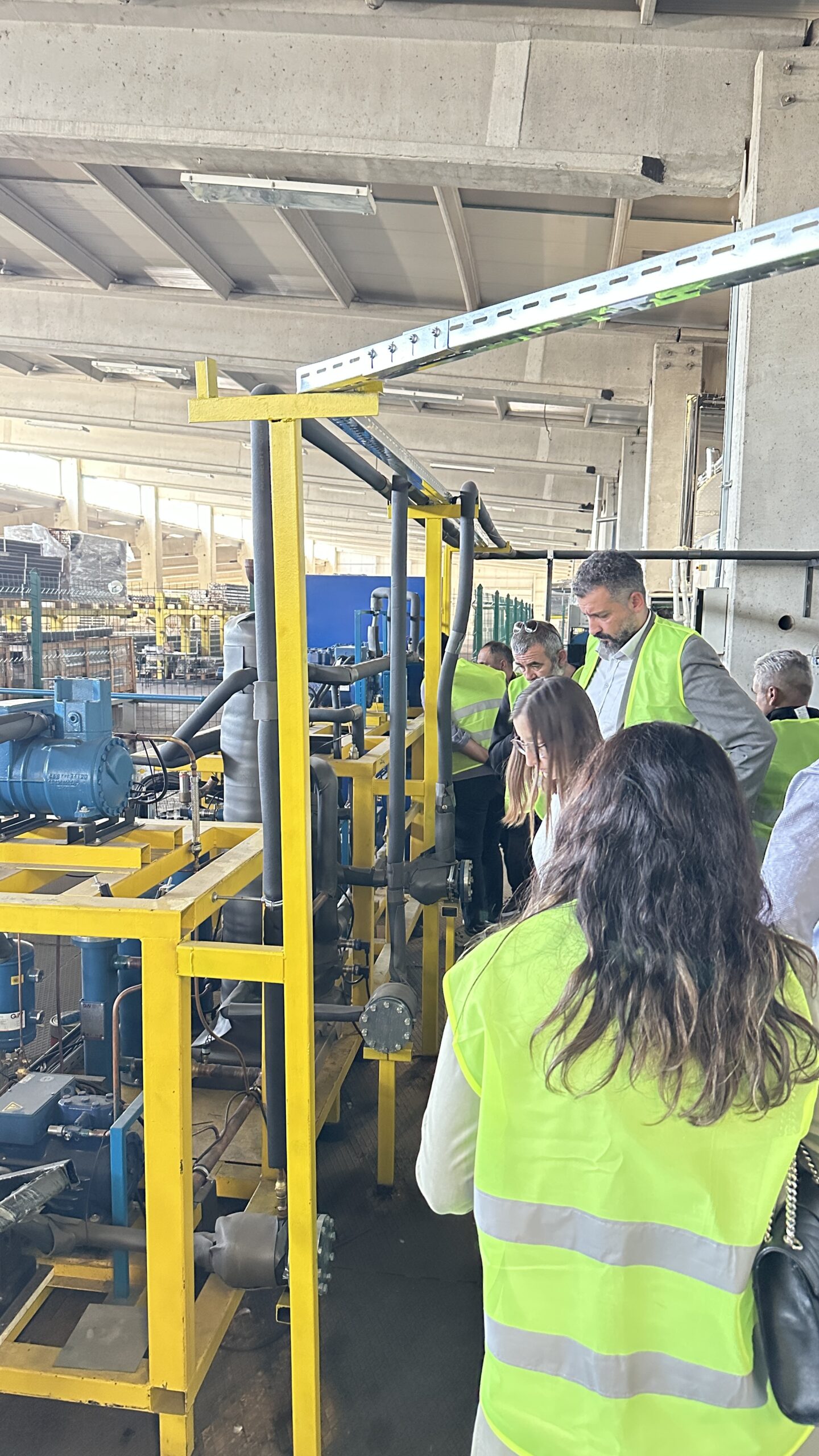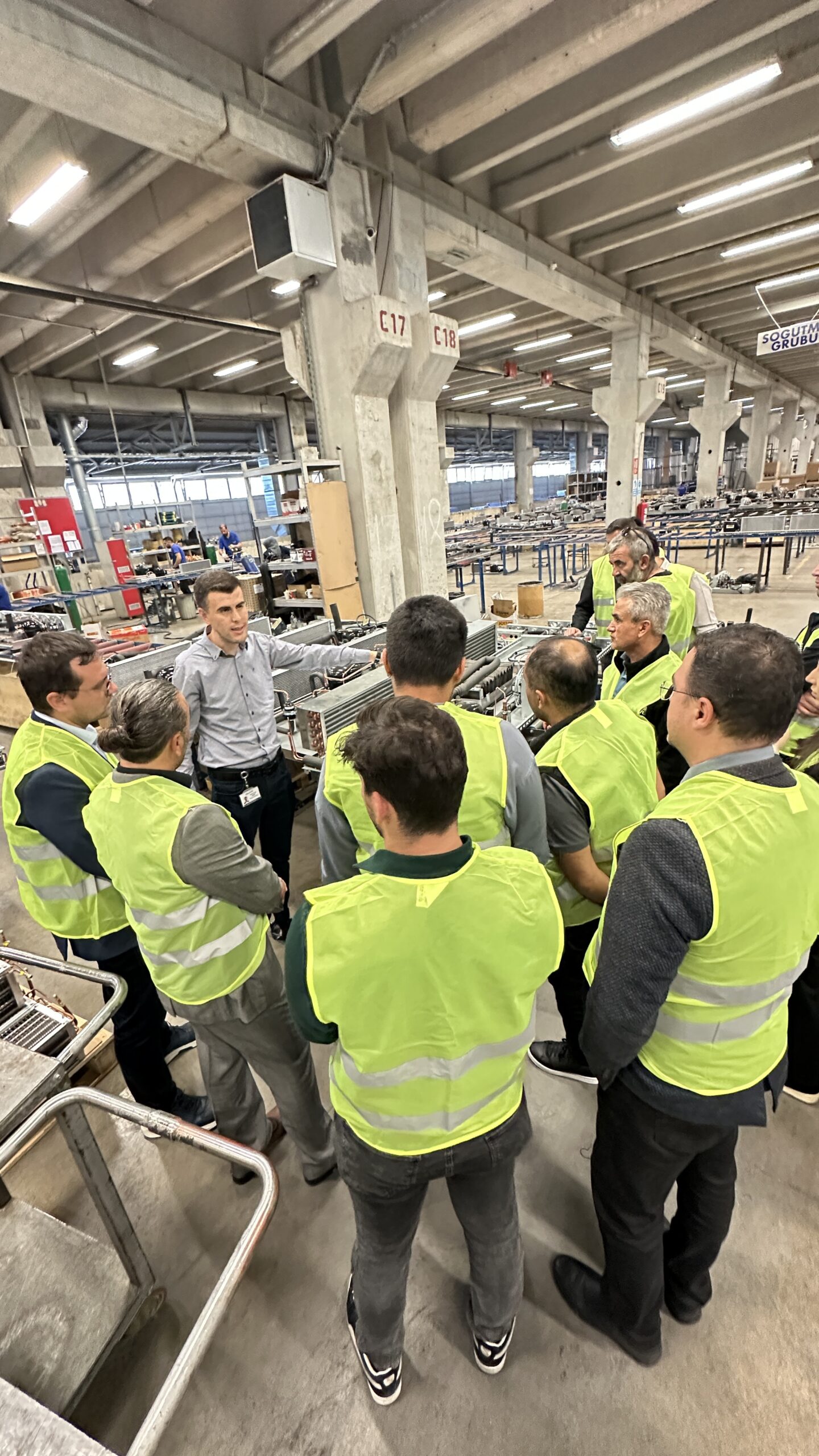3 October 2024 Ankara, Türkiye
Empowering technicians with natural refrigerant practices
On 3 October 2024 Cool Up’s country partner in Türkiye, UNDP Türkiye, successfully organized a comprehensive training session in Ankara for technical personnel in the cooling sector. The training focused on the use of natural refrigerants, providing both theoretical and practical knowledge to the participants.
As Türkiye prepares for the phased reduction of synthetic refrigerants starting in 2024 under the Kigali Amendment to the Montreal Protocol, the transition to natural refrigerants becomes essential for both the economy and climate action. Natural refrigerants have the potential to reduce global warming by 0.4°C by 2100, making them a key element in the fight against climate change.
The training emphasized the safe handling and application of natural refrigerants. With topics covering the features, applications, safety measures, and service procedures, technical personnel gained valuable insights into managing these refrigerants safely. Special attention was given to risk mitigation, including addressing potential risks such as ignition sources and refrigerant leakage.
Participants also benefited from a factory tour, providing hands-on experience in working with natural refrigerants, contributing to their understanding of the barriers and opportunities in Türkiye’s cooling sector.
Training local technicians for handling of natural refrigerants in sustainable cooling systems is crucial for several reasons:
- Environmentally friendly practices: Sustainable cooling solutions aim to reduce the environmental impact of refrigerants. Informed technicians can handle natural refrigerants responsibly, minimizing emissions, leaks, and improper disposal.
- Efficient system operation: Properly trained technicians can optimize the performance of cooling systems using natural refrigerants, leading to more energy-efficient operations and reduced energy consumption.
- Compliance with regulations: Many countries and regions have specific regulations and guidelines for handling natural refrigerants. Training ensures technicians are aware of these regulations and can comply with them, avoiding legal issues and penalties.
- Local capacity building: Informing local technicians empowers the community by creating job opportunities and expertise within the region. This reduces dependency on foreign experts and encourages sustainable development.
- Long-term cost savings: Technicians with knowledge in sustainable cooling methods can identify and address potential issues early on, reducing maintenance costs and extending the lifespan of cooling systems.
The training of local technicians for handling natural refrigerants benefits the environment and also strengthens local industrial communities, engages stakeholders at all levels, and promotes responsible and efficient cooling practices.
Congratulations to all of our participants for working so hard on their theoretical and practical skills!
Pictures from the technician training



